The Broadcom Stingray was the company’s original offering in the DPU space. It was designed as a direct competitor to the Mellanox / NVIDIA BlueField series of DPUs. From what we understand, the project has effectively been abandoned. At the same time, we managed to get one… because STH.
Broadcom Stingray PS225-H16
Here is our quick overview of the eight Arm A72 core DPU from Boradcom.
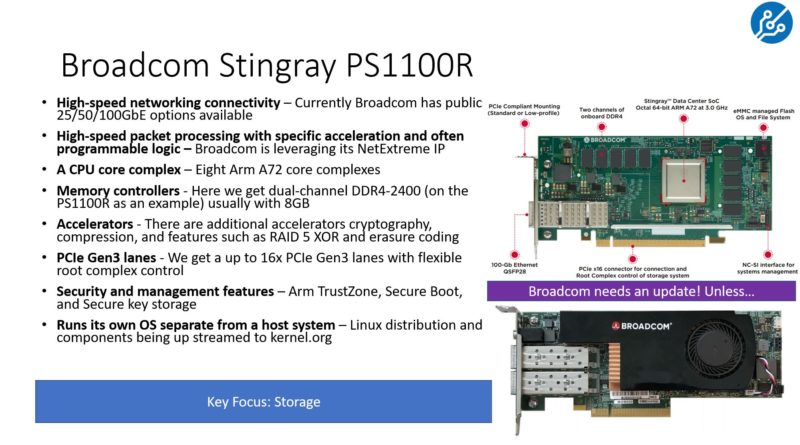
The slide above is from our What is a DPU A Data Processing Unit Quick Primer back in 2020.
We have been working a bit with this, and since it is a holiday weekend, we decided why not just show folks the DPU. The card itself is labeled the PS225-H16, and one can see a photo of it in the slide we made above for the DPU.
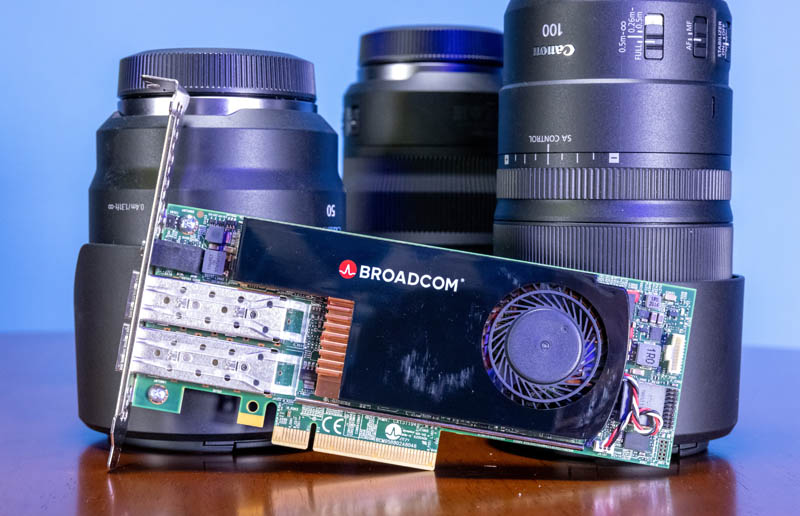
On the back, we get additional memory for the DPU. There is only a PCIe Gen3 x8 interface since this is a dual 25GbE device.
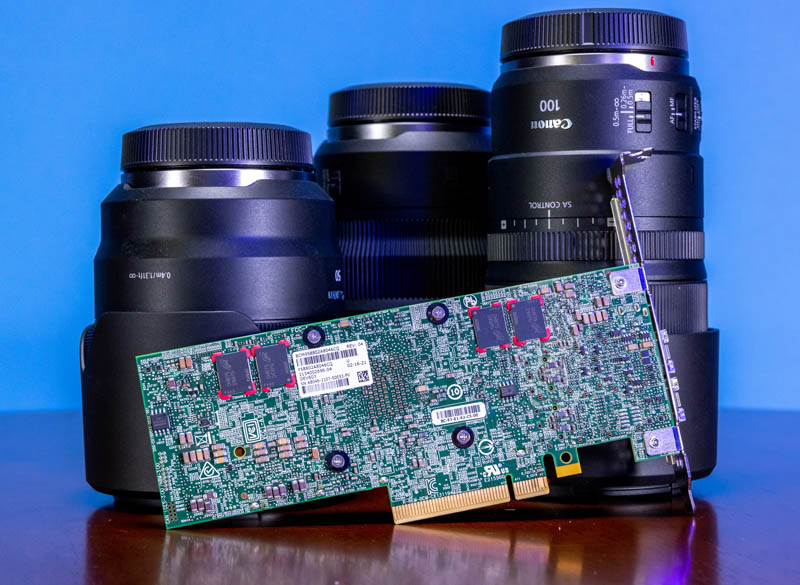
We can see the chip under the active heatsink. The blower also features a copper heatsink that is a bit different from many of the other solutions out there.
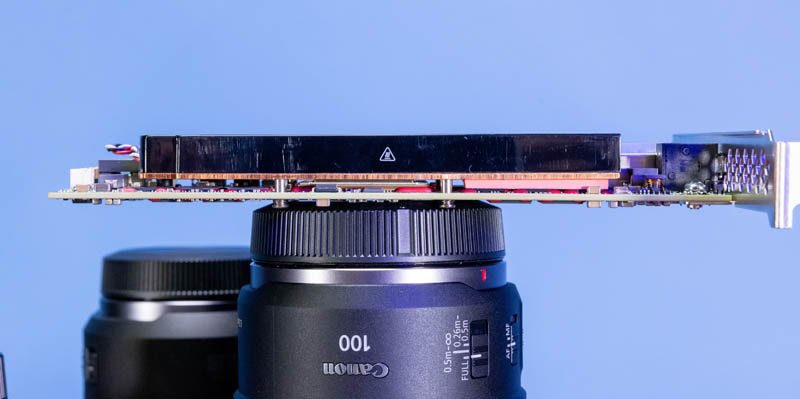
Next to the two SFP28 ports is a serial port. It took us two cables to be able to establish communication. This is an area where the NVIDIA BlueField-2 is vastly superior. NVIDIA has an out-of-band management SoC so it has a 1GbE OOB management port, plus the serial console like this, plus a management NIC in the OS. This felt like a miss by the Broadcom team, but we understand why it would be done. The setup makes management of the Stingray a bit harder than the NVIDIA DPUs.
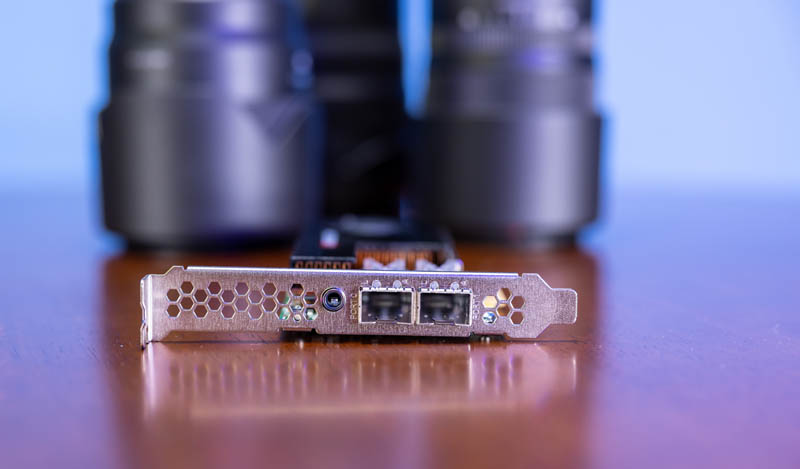
If you were wondering, the fan is an absolute screamer. One other challenge Broadcom has with the Stingray is that requiring a cooper heatsink with an active cooler is not as deployable as something like a BlueField or Pensando card. Here is the competitor NVIDIA BlueField-2 DPU that uses a passive commodity cooler even in a low-profile design.
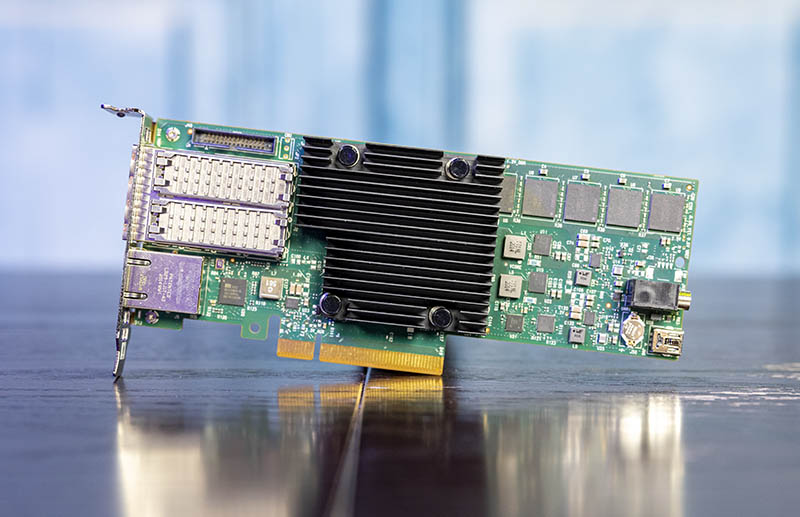
Hopefully, that was a fun look at the DPU.
Final Words
Since the Broadcom project seems to have gone away, we never did a formal piece on this DPU solution. That, combined with the fact that we took these photos while trialing new lighting in the STH studio (which is why they look so different than our current photos) meant that we never did a piece with these.
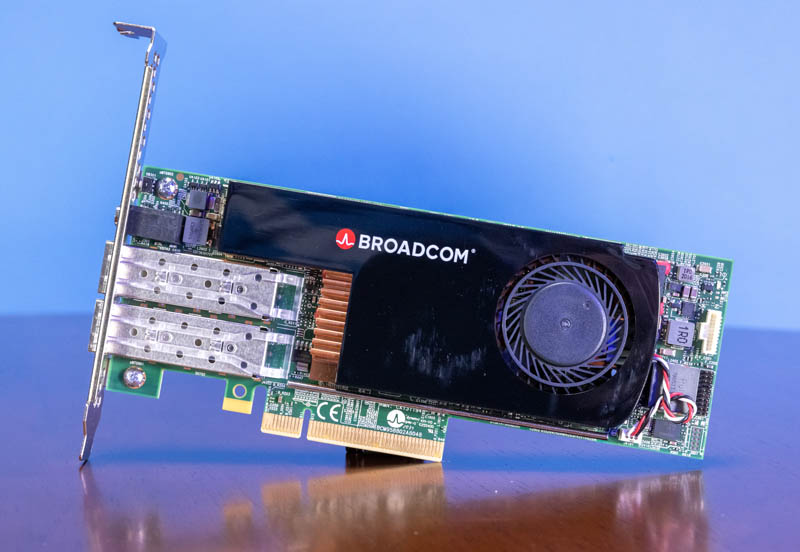
Still, since it is a holiday weekend, we figured we would at least show folks the hardware so that we have it online and available to reference later. We are working on pieces on four different DPU solutions right now, so we just wanted to have these photos available. So far, this is the DPU solution that seems to be closest to the BlueField-2 DPU in terms of its implementation.

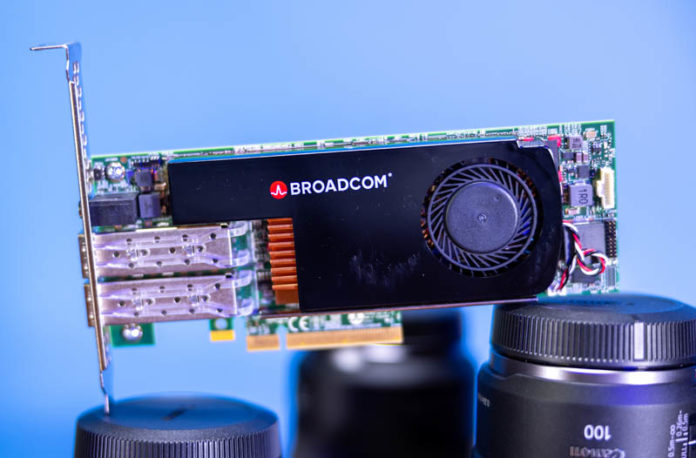
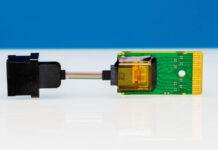
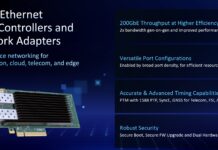
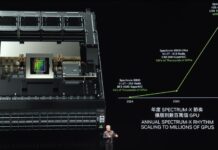
Is it known why this one is either very backburnered or outright dead?
My naive expectation would have been that a company with existing NIC lines, existing HBA lines, plenty of IP-related acceleration stuff from their switch chips; and at least some experience with application processors would find getting a DPU that at least qualifies as ‘credible’ out the door relatively simple and probably a good idea even if only as a hedge against demand for DPUs moving away from their NICs.
Is it just not a good fit for their ‘find areas of relatively high lock-in and squeeze hard’ approach?
It’s cool just to see these even if we won’t get to use them. I heard they made something no cloud wanted.
NVIDIA’s winning VMware
Pensando at Oracle
Intel DPU at Google
Microsoft bought Fungible but also has it’s own FPGAs and is using Pensando
That BSC FPGA is Baidu
AWS makes Nitro itself
Doesn’t leave room for Broadcom
“we managed to get one… because STH.”
Made me laugh.